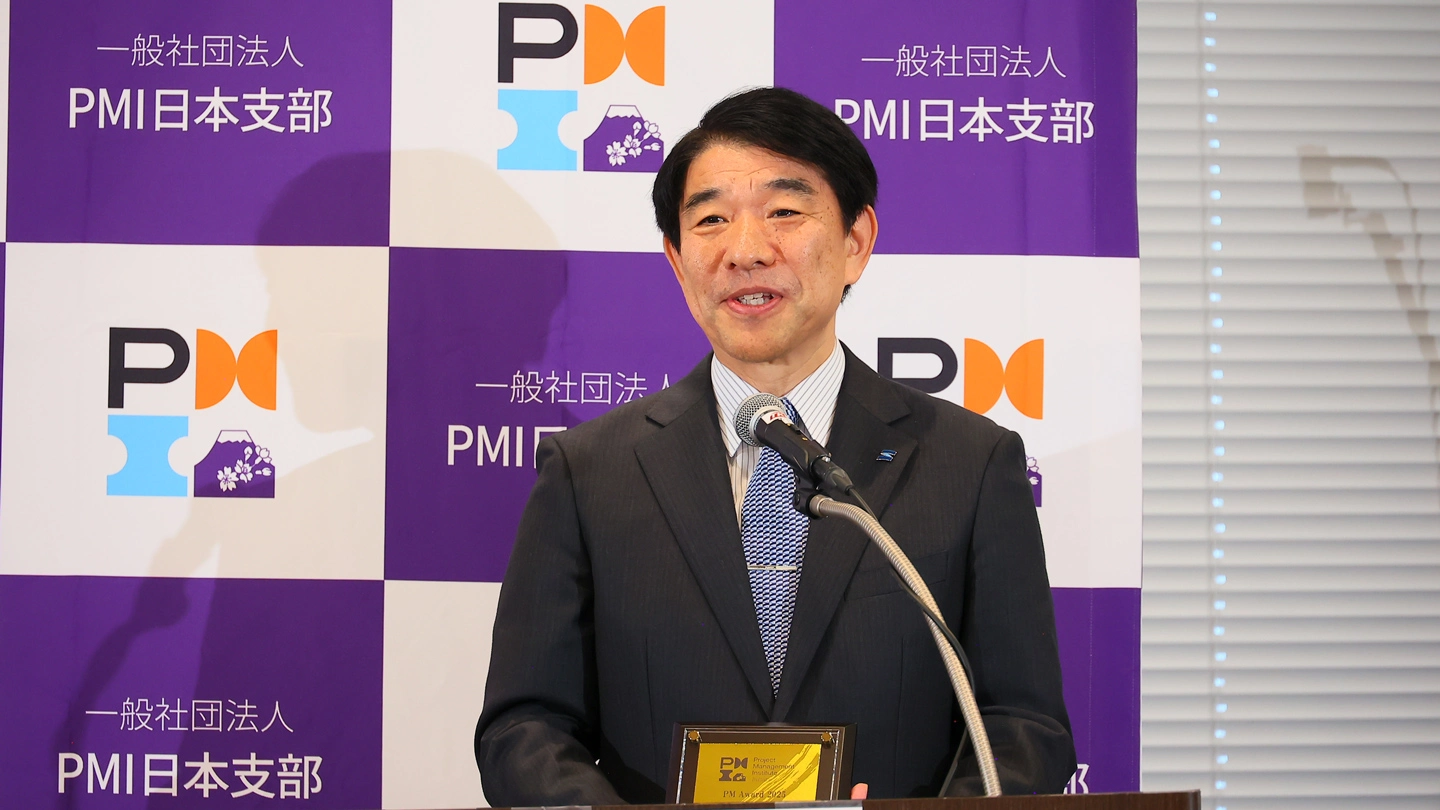Science Tokyo’s efforts to merge predecessor universities recognized at PM Award 2025
Science Tokyo has been recognized with the outstanding project award in the large category at the PM Award 2025 event, hosted by the Project Management Institute (PMI) Japan Chapter, on October 25. This award was granted to the Institute for the exceptional management demonstrated in the merging of Tokyo Medical and Dental University and Tokyo Institute of Technology, Science Tokyo’s predecessor universities.

The PM Award is a program run by the PMI Japan Chapter, a general incorporated association that promotes and disseminates project management in Japan, in cooperation with PMI, Inc., the world's leading not-for-profit professional organization for project management with some 700,000 members. Now in its fifth year, the award recognizes outstanding projects in Japan and by Japanese companies and organizations that contribute to creating the future.
The outstanding project award was granted to Science Tokyo based on votes from 1,400 individuals, including those holding the Project Management Professional (PMP)® certification, who watched pitches by finalists including members from the Institute. This recognition demonstrates that the birth of Science Tokyo is drawing attention both at home and abroad as a new model for organizational integration within educational and research institutions.
Integration Preparatory Committee and working groups play important roles
Before the actual establishment of Science Tokyo, an Integration Preparatory Committee comprising representatives from the two predecessor universities, along with 50 working groups and other bodies, was formed, paving the way for successful integration within a short two-year period. Utilizing project management methodologies, the members of these groups steadily addressed a wide range of challenges, including institutional design, organizational culture integration, and the restructuring of educational and research systems.
Co-creating new university identity with society
Prior to the official merger, Science Tokyo called for proposals for the new university's name and received over 6,000 suggestions from students, faculty, staff, alumni, and the broader community. This process led to the selection of the name “Institute of Science Tokyo.”
Furthermore, through the Institute of Science Tokyo Brand Action! project, the community engaged in diverse dialogue both on and off campus — including through workshops, interviews, and surveys — to co-create the Institute's philosophy and logo, which were then widely disseminated as symbols of the integration.
Advancing interdisciplinary, integrated research and education through Visionary Initiatives (VIs)
Following the integration, Science Tokyo introduced the Visionary Initiatives (VIs), which form the Institute’s vision-driven interdisciplinary research framework, aiming to cultivate an environment for forming new value across disciplinary boundaries and creating a better, brighter future.
The VIs demonstrate that the integration is not merely an institutional merger, but a significant transformation from a vertically structured system to a cross-disciplinary one. It serves as a new starting point for learning and research. As an open-system university anchored by the VIs, Science Tokyo is actively advancing collaborations with global partners.


Power of careful communication
Through an unprecedented university integration project, the members of Science Tokyo learned anew the importance of careful communication both within and outside the Institute. This communicative approach is deeply ingrained in Science Tokyo's philosophy and forms the foundation of university management.
Science Tokyo will continue to leverage its project management capabilities to envision the future of the Institute. The PM Award 2025 is the result of collaboration in the face of major challenges, and marks a step toward the next transformation.